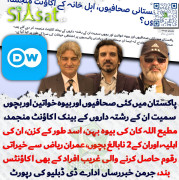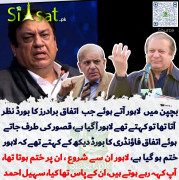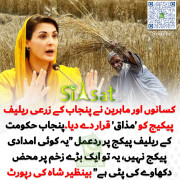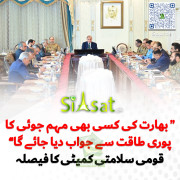Here are some of the great scholars sayings about Tasawuuf:
Imam Al-Shaf'i:
"If a person excercized sufism(tasawafa) at the begininng of the day, he doesn't come at Zuhur except an idiot".
"Nobody accompanied the Sufis forty days and had his brain return(never) "
And he recited in poetry: " And leave (alone) who if came to you practiced piety/ and when alone were concealed wolves"-Pgs 371 Talbees Iblis
And when he went to Egypt he said: "I have left Baghdad and the aetheists(Zanadiga) have innovated a thing they call Sama'(Hearing)" - He is referring to the singinig and dancing that the Sufis innovated in the second century and is still spread amongst them till the present day.
N.B: Notice how Imam Al-Shafi' who was Malik's student opposed Sufism. One wonders how some beleive in what was ascribed to Imam Malik concerning Sufism( Man tasawwafa walam yatafaghaha-etc). There exists different views amongst the two Imams in Fiqh matters but this is a matter of Aqidah, they have one and the same Aqidah.
Imam Ahmed Bin Hanbal:
" Warn (people) from Al-Harith( a Sufi leader) the strongest warning!!Al-Harith is the origin of the confusion(referring to the incidents of Jahm- . Fulan and Fulan have sat with that (person) and he has changed them to Jahm's view, He is still the shelter of the people of the talk. Harith is in the position of a garrisonned lion any day (he) will leap on the people"-Talbees Iblis Pgs166-167.
Imam Abu Zara' Al-Dimashqi:
When asked about the books of Al-Harith Al-Muhasbi: "Beware of those books. those are books of innovation and misguidance.Stick to what has been related from the prophet-saaws-(Al-Athar), you will find in it what would spare you those books. It was told to him:There is a lesson(Ibra) in those books. He said: Whoever doesn't find a lesson from the book of Allah, would not find a lesson in those books. It has reached you that Malik bin Anas, Sufyan AL-Thawri, Al-Awzai and the precedent Imamas classified those books amongst the anxieties, insinuations and those(similar) things. Those(meaning the Sufis) people contradicted the people of knowledge ( Ahl Al-Elm), they come to us once by Al-Harith Al-Muhasbi, another by Abdul-Raheem Al-Dubeeli, another by Hatim Al-Asam, another by Shaqiq Al-Bulakhi, then he said: how fast are people (going ) to innovations(Al-Bida')."
Conclusion:
To sum up, the great scholars opposed the innovations that the Sufis have brought to Islam through their deviated spiritual approaches.Millions of people around the world have been converted from Mohammad-saaws-'s Islam to Sufism





































